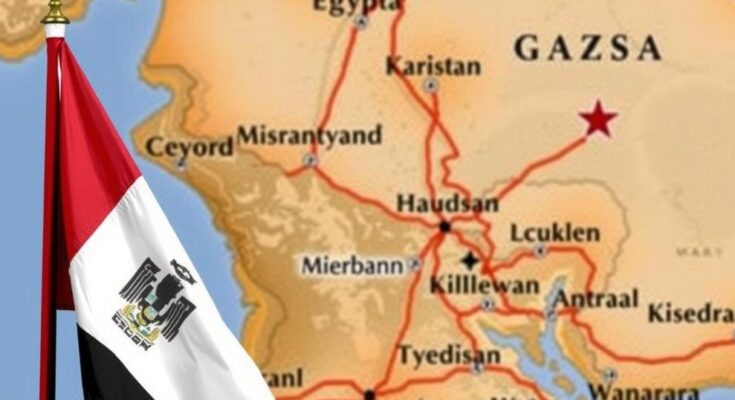Egypt has called for immediate international measures to stop Israel’s offensive in Gaza, citing a humanitarian crisis. Discussions with the UN for aid delivery are ongoing. The Spanish Foreign Minister also advocated for a cease-fire and emphasized non-supply of weapons to Israel since the conflict began.
On Wednesday, Egypt urged the global community to take “decisive and immediate measures” to halt Israel’s ongoing military operations in the Gaza Strip. This urgent plea was made by Foreign Minister Badr Abdelatty during a press conference held in Cairo alongside his Spanish counterpart, José Manuel Albares. Abdelatty highlighted the necessity of prompt action to address the “humanitarian and medical catastrophe” resulting from Israel’s assaults on Gaza. Discussions with the United Nations are underway to facilitate the provision of humanitarian aid to the affected region, although further specifics were not disclosed. The Egyptian minister also pointed out that Egypt continues to work toward de-escalating the situation, referencing a recent meeting in Cairo that brought together representatives from the Fatah and Hamas factions to discuss the current Palestinian predicament and bolster the Palestinian Authority. Additionally, Iranian Foreign Minister Abbas Araghchi is set to visit Cairo as part of Egypt’s diplomatic initiatives aimed at mitigating regional tensions. Spain’s Foreign Minister Albares echoed the call for an immediate cease-fire across Gaza and Lebanon, asserting that peace and stability can only be achieved through the establishment of a Palestinian state aligned with the two-state solution framework. He informed the press that Spain has refrained from supplying any weaponry to Israel since the commencement of its offensive in Gaza on October 7, 2023, emphasizing that the region requires de-escalation rather than increased militarization. Albares further urged for an end to violence in Lebanon and the strict adherence to UN Security Council Resolution 1701, which aims to maintain peace between Israel and Lebanon. The context of these discussions arises from Israel’s aggressive military campaign in the Gaza Strip, initiated following a significant Hamas attack last year, resulting in over 42,400 casualties, predominantly among women and children, and injuring more than 99,000 individuals. The hostilities have also extended to Lebanon, where Israeli strikes have led to more than 1,500 deaths and over 4,500 injuries since September 23. Despite cautions regarding the potential for a wider regional war stemming from Israel’s persistent assaults on Gaza and Lebanon, Israel has broadened its military actions by launching a ground incursion into southern Lebanon on October 1.
The current humanitarian crisis in Gaza stems from intensified military conflict, triggered by a Hamas attack on Israel that has resulted in extensive casualties. In light of these circumstances, Egypt has taken on a diplomatic role, engaging with international stakeholders and organizations such as the United Nations to facilitate humanitarian aid delivery. The strategic involvement of nations such as Spain underscores the broader implications of the conflict, not only for the directly affected regions but also for international efforts aimed at achieving stability in the Middle East.
In conclusion, the urgent call from Egypt for immediate international intervention highlights the grave humanitarian situation in Gaza resulting from ongoing military operations. Both Egypt and Spain advocate for a halt to hostilities and a return to diplomatic negotiations, underscoring the necessity of a stable resolution through the establishment of a Palestinian state and adherence to existing international agreements. The escalating violence, now affecting Lebanon, poses significant challenges to regional peace efforts.
Original Source: www.aa.com.tr




